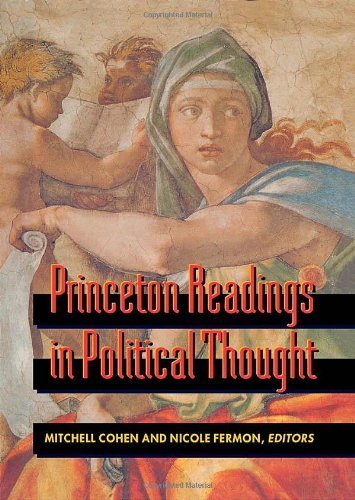What do you think?
Rate this book


Paperback
First published March 24, 1996
In modernity, there is the emergence of an explicit naiveté towards political thought. The discussions focus on technical details, and differences of opinions, while leaving out the implicit acceptance of ideological theories without realizing the foundations or the consequences of those ideologies. Simplistic evidence of such an assertion can be witnessed through the interaction of social media platforms that allow anyone to discuss what they believe to be “right” or “wrong”; “better” or “worse”. Concurrently, there is no longer the need to interact with opposing views, to be subject to examination of opinions alternate of one’s own. Realistically, an individual could create a virtual environment of views, opinions, and beliefs that are tailor made to match their own. Perhaps this is a cogent reason to study Political Theory / Philosophy. Would it not be better to understand the underlying reasons for our political beliefs? Would it not be beneficial to study the “roots” of those ideologies?
This is where an anthology, like Princeton Readings in Political Thought: Essential Texts Since Plato provides an excellent source to study Political Theory and Philosophy. In this anthology, editors Mitchell Cohen and Nicole Fermon, have compiled for the reader an engaging selection of political theory that spans in excess of 2,500 years. Focusing on the primary concepts of 44 of the most prominent thinkers in Western political thought, this anthology provides the reader with 55 distinct writings that focus on speculative, investigative, and contemplative aspects of key questions in political theory. These questions viz., “what is power,” “who should rule,” “what obligations does a citizen have,” and “how much control the government should have over a citizen’s private life,” provide plenty of room for discussion, opinion, and observation.
Remarkably, the editors have further subjugated the reading into the categories of “Classical Political Thought,” “The Middle Ages,” “Modern Political Thought,” and “In Our Times”. If read in sequence, this makes for an intriguing exposition into the truth value of earlier political theories, and the unintended consequences of prior patterns of belief. One of the more interesting aspects of the anthology is its ability to trace the development of political questions that arise throughout history. One can easily read how perhaps the theories of Machiavelli, Niccolo, or John Locke, provided the kindling for the fires of Karl Marx, V.I. Lenin, or Emma Goldman. Moreover, the editors decision to include the most abstract thinkers such as Friedrich Nietzsche, G.W.F. Hegel, and Michel Foucault (to only name a few), presents a robust diversity of theory.
My encounter with this material was through the medium of two, semester length, lectures on political theory. Focusing on only a dozen of these thinkers, per semester – and augmenting those writings with bibliographies of the thinkers – along with open discussion, and intense scrutiny of the writings proved to be a fruitful and compelling adventure.
Ultimately, I would like to be able to recommend this anthology to anyone who really is serious about the “roots” of political ideology. I will keep my copy on hand and probably refer to it when discussing the benefits or consequences of various systems of political ideology.